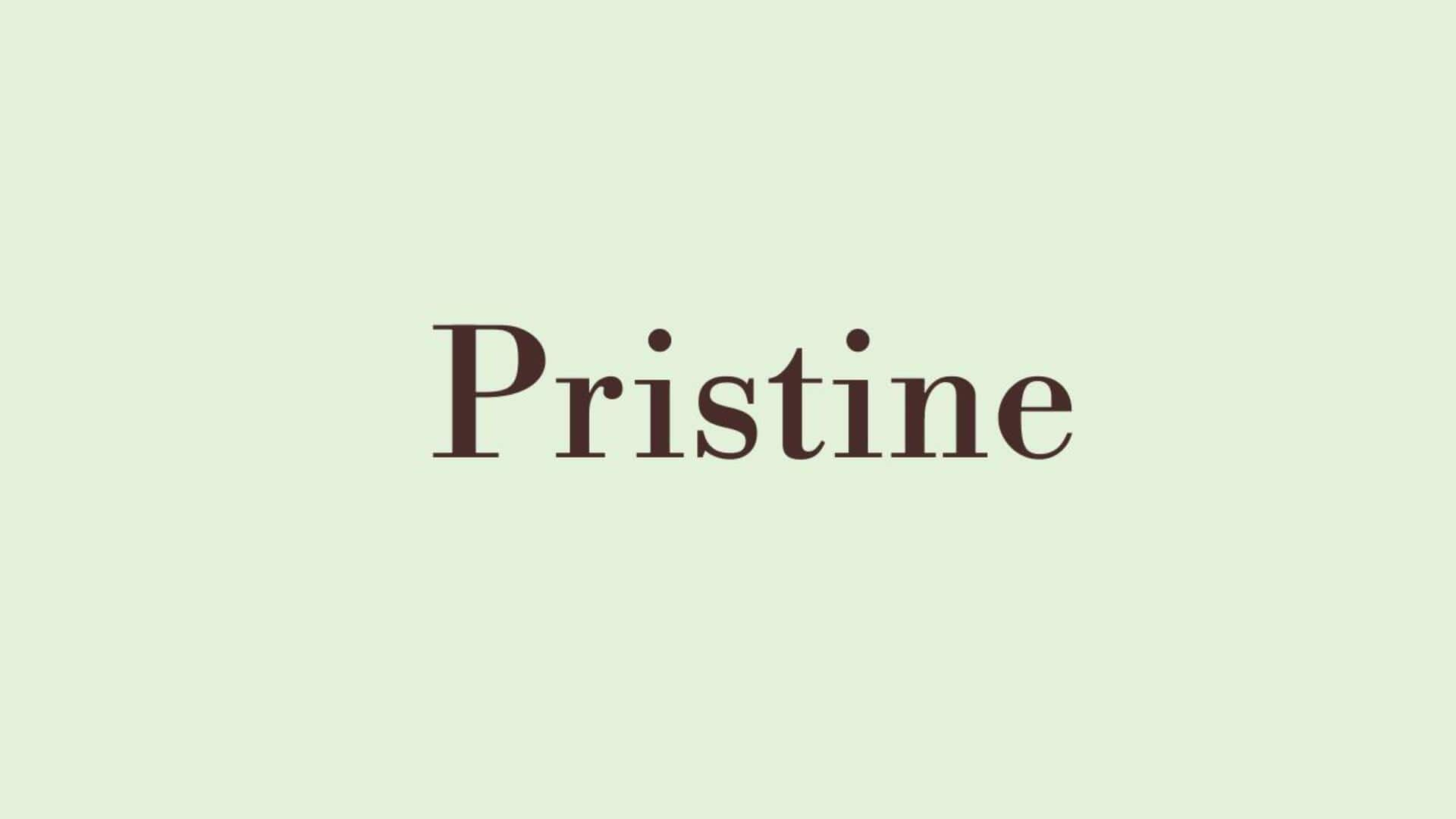Lifestyle
Discover the Meaning and Usage of “Pristine” in Everyday Language

The term “pristine” captures the essence of something in its original, untouched condition. It describes not only natural landscapes but also new items and anything preserved in perfect form. This word, derived from the Latin term pristinus, meaning “former” or “original,” entered the English language in the 16th century. Initially, it connoted antiquity, but its meaning has since evolved to emphasize purity and an unaltered state.
Today, “pristine” is commonly employed to express admiration for things that remain clean, new, or naturally perfect. In various contexts, it evokes a sense of beauty and order. For instance, the word resonates in descriptions of untouched natural environments, such as a lake nestled high in the mountains, where hikers often marvel at its pristine waters. Similarly, collectors value items, such as vintage books, that are maintained in pristine condition, reflecting their dedication to preservation.
Exploring Synonyms and Contexts
Several synonyms convey similar sentiments, including immaculate, spotless, unspoiled, and flawless. Each of these words emphasizes order and cleanliness, enhancing descriptions of both natural and man-made objects. For example, a gallery’s floor can remain pristine even amidst large crowds, illustrating how careful maintenance can uphold an environment’s aesthetic appeal.
Using “pristine” enhances the elegance and precision of descriptions, making it especially suitable for writing about nature, luxury items, or well-maintained spaces. It creates a vivid picture of undisturbed beauty and excellence. Whether one is admiring a scenic view or evaluating a valuable object, “pristine” effectively conveys admiration for perfection in both form and preservation.
Pristine in Everyday Usage
The versatility of “pristine” allows it to fit into various scenarios seamlessly. People often use it in everyday conversation, whether discussing the allure of a natural landscape or the careful upkeep of personal belongings. Its presence in language adds a layer of sophistication, making descriptions more impactful and engaging.
In essence, “pristine” serves as a powerful descriptor that resonates with audiences across different contexts. Its ability to evoke admiration and highlight the purity of a subject contributes to its continued relevance in contemporary language. As people navigate conversations about nature, aesthetics, and preservation, the term will likely remain a favored choice for conveying the idea of untouched perfection.
-

 World2 weeks ago
World2 weeks agoTorrential Rains Cause Flash Flooding in New York and New Jersey
-

 Top Stories2 weeks ago
Top Stories2 weeks agoKonkani Cultural Organisation to Host Pearl Jubilee in Abu Dhabi
-

 Science2 weeks ago
Science2 weeks agoNothing Headphone 1 Review: A Bold Contender in Audio Design
-

 Top Stories2 weeks ago
Top Stories2 weeks agoAir India Crash Investigation Highlights Boeing Fuel Switch Concerns
-

 Business2 weeks ago
Business2 weeks agoIndian Stock Market Rebounds: Sensex and Nifty Rise After Four-Day Decline
-

 Lifestyle2 weeks ago
Lifestyle2 weeks agoCept Unveils ₹3.1 Crore Urban Mobility Plan for Sustainable Growth
-

 Politics2 weeks ago
Politics2 weeks agoAbandoned Doberman Finds New Home After Journey to Prague
-

 Top Stories2 weeks ago
Top Stories2 weeks agoPatna Bank Manager Abhishek Varun Found Dead in Well
-

 World2 weeks ago
World2 weeks agoSBI Announces QIP Floor Price at ₹811.05 Per Share
-

 Science2 weeks ago
Science2 weeks agoTesla’s Model Y and Model 3 Lead U.S. EV Sales Despite Decline
-

 World2 weeks ago
World2 weeks agoTrump Expresses Disappointment in Putin, Affirms NATO and UK Ties
-

 Sports1 week ago
Sports1 week agoArshdeep Singh Suffers Hand Injury Ahead of Key Manchester Test









